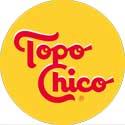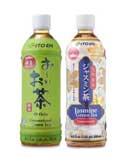Coca-Cola
India’s Coffee Day Enterprises Chairman Commits Suicide In Midst Of Coca-Cola Negotiations
 While negotiating with Coca-Cola to sell his stake in India’s Coffee Day Enterprises, founder-owner VG Siddhartha apparently committed suicide. According to reports, he left a letter addressed to the board of directors before going missing, saying that he had “failed to create the right profitable business model despite my best efforts.” The board has named SV Ranganath as the interim chairperson. The letter went on to say: “I fought for a long time but today I gave up as I could not take any more pressure from one of the private equity partners forcing me to buy back shares.” According to unnamed sources, the company was in talks with top management of Coca-Cola in the U.S. If completed, it would be Coca-Cola's second major investment after acquiring U.K.-based Costa Coffee for $5.1 billion in September last year.[Image Credit: © Coffee Day Enterprises Ltd.]
While negotiating with Coca-Cola to sell his stake in India’s Coffee Day Enterprises, founder-owner VG Siddhartha apparently committed suicide. According to reports, he left a letter addressed to the board of directors before going missing, saying that he had “failed to create the right profitable business model despite my best efforts.” The board has named SV Ranganath as the interim chairperson. The letter went on to say: “I fought for a long time but today I gave up as I could not take any more pressure from one of the private equity partners forcing me to buy back shares.” According to unnamed sources, the company was in talks with top management of Coca-Cola in the U.S. If completed, it would be Coca-Cola's second major investment after acquiring U.K.-based Costa Coffee for $5.1 billion in September last year.[Image Credit: © Coffee Day Enterprises Ltd.]
Coca-Cola’s Chinese Bottler Swire To Move Local Head Office To Shanghai
Coca-Cola Defends Its “Love Is Love” Ad Campaign After Hungarian Criticism
Coca-Cola Acquires South American Beverage Trademarks
Coca-Cola Rides The Sparkling Water Wave With Energized Topo Chico
 Coca-Cola is expanding the visibility and availability of Tex/Mex sparkling mineral water favorite Topo Chico across the U.S. while preserving the local vibe and Mexican heritage that gives the brand its status among consumers. The key is to take a measured approach, Coca-Cola says, so it can preserve the brand’s mystique. Topo Chico is expanding rapidly beyond Texas, appearing recently at the grand opening of a new Whole Foods in New Jersey, and in stores in Hawaii. A store manager on Hawaii’s Big Island says customers like the glass bottles and the “throwback image” of the brand. Coca-Cola acquired the beverage giant Arca Continental SAB in 2017, and the bottler has poured $42 million into the Topo Chico operation to meet increased demand since the Coke purchase: over the last year, Topo Chico’s U.S. sales jumped 39 percent.[Image Credit: © Topo Chico Mineral Water]
Coca-Cola is expanding the visibility and availability of Tex/Mex sparkling mineral water favorite Topo Chico across the U.S. while preserving the local vibe and Mexican heritage that gives the brand its status among consumers. The key is to take a measured approach, Coca-Cola says, so it can preserve the brand’s mystique. Topo Chico is expanding rapidly beyond Texas, appearing recently at the grand opening of a new Whole Foods in New Jersey, and in stores in Hawaii. A store manager on Hawaii’s Big Island says customers like the glass bottles and the “throwback image” of the brand. Coca-Cola acquired the beverage giant Arca Continental SAB in 2017, and the bottler has poured $42 million into the Topo Chico operation to meet increased demand since the Coke purchase: over the last year, Topo Chico’s U.S. sales jumped 39 percent.[Image Credit: © Topo Chico Mineral Water]
Keurig Dr Pepper
Beth Newhart KDP Ups Its Recyclability Targets For Next Six Years
Nestle
PT Nestlé Indonesia Boosts Production Capacity In Three Factories
Vegan-Certified Plant-Based Lattes From Nestlé
 Nestlé has launched new premium plant-based Nescafé Gold non-dairy lattes made with almond, oat, and coconut blended with 100 percent Arabica coffee beans. According to the company, they are the first non-dairy soluble coffee lattes and are certified by the Vegan Society as suitable for people following a vegan diet. The products, launched first in the U.K. and Ireland, will be rolled out in several markets across Asia, Europe, Latin America, and Oceania.[Image Credit: © Nestlé]
Nestlé has launched new premium plant-based Nescafé Gold non-dairy lattes made with almond, oat, and coconut blended with 100 percent Arabica coffee beans. According to the company, they are the first non-dairy soluble coffee lattes and are certified by the Vegan Society as suitable for people following a vegan diet. The products, launched first in the U.K. and Ireland, will be rolled out in several markets across Asia, Europe, Latin America, and Oceania.[Image Credit: © Nestlé]
Other Companies
Israeli Start-Up Has Developed A Healthful Way To Reduce Sugar In OJ
 Israeli food-tech start-up Better Juice, Ltd., has partnered with Brazilian orange juice concentrate producer Citrosuco to establish a pilot plant that uses technology to cut sugar content in orange juice. Better Juice says its enzymatic technology naturally transforms all fruit sugars – there are three in orange juice – into healthful prebiotic fibers and other nondigestible sugars. The technology appears at just the right time, according to market researchers. Nearly seven out of ten consumers – particularly those over 55 – across countries surveyed by Innova (U.S., U.K., France, Germany, China, and Brazil) have reduced their sugar intake. The Better Juice device uses non-GMO microorganisms to convert the sugar, providing orange juice manufacturers with “a ready opportunity to meet the trends and claims for reduced sugars, all while keeping the flavor of the beverage,” says CEO Eran Blachinsky. [Image Credit: © Citrosuco]
Israeli food-tech start-up Better Juice, Ltd., has partnered with Brazilian orange juice concentrate producer Citrosuco to establish a pilot plant that uses technology to cut sugar content in orange juice. Better Juice says its enzymatic technology naturally transforms all fruit sugars – there are three in orange juice – into healthful prebiotic fibers and other nondigestible sugars. The technology appears at just the right time, according to market researchers. Nearly seven out of ten consumers – particularly those over 55 – across countries surveyed by Innova (U.S., U.K., France, Germany, China, and Brazil) have reduced their sugar intake. The Better Juice device uses non-GMO microorganisms to convert the sugar, providing orange juice manufacturers with “a ready opportunity to meet the trends and claims for reduced sugars, all while keeping the flavor of the beverage,” says CEO Eran Blachinsky. [Image Credit: © Citrosuco]
Walmart To Sell ITO EN RTD Green Teas Beginning In October

New York-based green tea producer ITO EN (North America), a subsidiary of ITO EN (Japan) Ltd., announced that its Oi Ocha ready-to-drink green tea brand will be sold in Walmart stores nationwide this fall. Two unsweetened flavors – Oi Ocha green tea and Jasmine Green Tea – will be available beginning in October 2019. The teas are non-GMO certified and contain natural catechin tea antioxidants, natural vitamin C (ascorbic acid), and zero calories. The teas are packaged in 16.9 fl. oz recyclable PET bottles.[Image Credit: © Business Wire]
Canadian Alkaline Water Company Sets Up Operations In Shenandoah Valley
Raw Pressery Expands Into Non-Dairy Milks And Dairy Products
 Mumbai-based Indian cold-pressed juice startup Raw Pressery, a brand of Rakyan Beverages, is stepping into the dairy market with the launch of milks, shakes and drinkable yogurt. Best known for its cold-pressed juices – they account for 85 percent of its revenue – Raw Pressery has produced plain and cocoa almond milk for seven months and expects to expand the line in 200 ml and one-liter sizes. The company is also launching mango and dates variants this month. It expects the non-juice segment to contribute to over half of the company’s revenues within three years. Raw Pressery has raised $22.4 million in equity so far and hopes to raise more to fund its product and marketing expansion.[Image Credit: © Rakyan Beverages]
Mumbai-based Indian cold-pressed juice startup Raw Pressery, a brand of Rakyan Beverages, is stepping into the dairy market with the launch of milks, shakes and drinkable yogurt. Best known for its cold-pressed juices – they account for 85 percent of its revenue – Raw Pressery has produced plain and cocoa almond milk for seven months and expects to expand the line in 200 ml and one-liter sizes. The company is also launching mango and dates variants this month. It expects the non-juice segment to contribute to over half of the company’s revenues within three years. Raw Pressery has raised $22.4 million in equity so far and hopes to raise more to fund its product and marketing expansion.[Image Credit: © Rakyan Beverages]
Glanbia Debuts Heat-Stable Creatine For RTD Sports Beverages
 Food and beverage ingredients company Glanbia Nutritionals has introduced a heat-stable creatine monohydrate, dubbed CreaBev, for RTD sports beverages. Creatine supplements are commonly used for improving exercise performance and increasing muscle mass in athletes and older adults. A survey of 1,014 U.S. consumers found that 86 percent of consumers had a positive sentiment toward creatine monohydrate. But, according to the company, creatine degrades to the excreted waste product creatinine at room temperature. In company testing of CreaBev, 98.37 percent of the creatine monohydrate was present in room temperature water in the first five minutes after mixing. The new product is available to formulators in the U.S., Canada, and Mexico now, and will be available in Europe and Asia later this year.[Image Credit: © Glanbia plc]
Food and beverage ingredients company Glanbia Nutritionals has introduced a heat-stable creatine monohydrate, dubbed CreaBev, for RTD sports beverages. Creatine supplements are commonly used for improving exercise performance and increasing muscle mass in athletes and older adults. A survey of 1,014 U.S. consumers found that 86 percent of consumers had a positive sentiment toward creatine monohydrate. But, according to the company, creatine degrades to the excreted waste product creatinine at room temperature. In company testing of CreaBev, 98.37 percent of the creatine monohydrate was present in room temperature water in the first five minutes after mixing. The new product is available to formulators in the U.S., Canada, and Mexico now, and will be available in Europe and Asia later this year.[Image Credit: © Glanbia plc]
Carbonated Version Of Sunny D Launches In The U.K.
 Sunny D, manufactured by Sunny Delight Beverages Co., has launched a carbonated variant of its orange-flavored drink in the U.K., available in a 330 ml price-marked cans retailing at $0.79. The drink contains 13 percent juice and sparkling water and will have a high vitamin D content: 75 percent of the recommended daily intake. The launch will be supported by a nationwide sampling campaign beginning on August 26. More than 57,000 samples will be given out to more than 700,000 consumers across 17 cities.[Image Credit: © Sunny Delight Beverages Co.]
Sunny D, manufactured by Sunny Delight Beverages Co., has launched a carbonated variant of its orange-flavored drink in the U.K., available in a 330 ml price-marked cans retailing at $0.79. The drink contains 13 percent juice and sparkling water and will have a high vitamin D content: 75 percent of the recommended daily intake. The launch will be supported by a nationwide sampling campaign beginning on August 26. More than 57,000 samples will be given out to more than 700,000 consumers across 17 cities.[Image Credit: © Sunny Delight Beverages Co.]
Bank Paints Rosy Picture For Soft Drink Industry In East Africa
 Africa’s Standard Bank says the global soft drinks industry is worth $295 billion and will grow to $377 billion by 2023. Though Africa only accounts for three percent of this total value, it will rise to 3.9 percent by 2023. The bank says the soft drink space is likely to grow on the continent because Africa’s population – 16 percent of the total global population – will rise to 25 percent of the world’s population by 2050. The soft drink market will be especially vibrant in East African countries like Kenya, Tanzania and Uganda. Standard Bank surveyed soft drinks consumers, producers and distributors in East Africa. Africa’s large and youthful population, upward urban growth trajectory, and socially-connected mobile users, among other trends, are propelling the African economy.[Image Credit: © Marie Sjödin from Pixabay]
Africa’s Standard Bank says the global soft drinks industry is worth $295 billion and will grow to $377 billion by 2023. Though Africa only accounts for three percent of this total value, it will rise to 3.9 percent by 2023. The bank says the soft drink space is likely to grow on the continent because Africa’s population – 16 percent of the total global population – will rise to 25 percent of the world’s population by 2050. The soft drink market will be especially vibrant in East African countries like Kenya, Tanzania and Uganda. Standard Bank surveyed soft drinks consumers, producers and distributors in East Africa. Africa’s large and youthful population, upward urban growth trajectory, and socially-connected mobile users, among other trends, are propelling the African economy.[Image Credit: © Marie Sjödin from Pixabay]
RTD, Cold Brew, Iced Coffee Growing Fast In U.K.
 RTD, cold brew, and iced coffee drinks are growing the fastest in the U.K., according to data compiled by the Allegra World Coffee Portal using consumer surveys, industry consultations, and field and data research. Iced drink sales grew to $480 million in 2018, up 14.3 percent from 2017. This category represents 5.8 percent of the U.K. specialist coffee shop segment, which generates $8.3 billion in annual revenue. WCP expects iced coffee drinks in the U.K. to build on its “strong market momentum,” forecasting $546 million in sales for 2019. An Allegra representative said iced beverages continue to represent a growing opportunity for the U.K. coffee market “to innovate, access younger consumers, and broaden the appeal of coffee venues.”[Image Credit: © StockSnap from Pixabay]
RTD, cold brew, and iced coffee drinks are growing the fastest in the U.K., according to data compiled by the Allegra World Coffee Portal using consumer surveys, industry consultations, and field and data research. Iced drink sales grew to $480 million in 2018, up 14.3 percent from 2017. This category represents 5.8 percent of the U.K. specialist coffee shop segment, which generates $8.3 billion in annual revenue. WCP expects iced coffee drinks in the U.K. to build on its “strong market momentum,” forecasting $546 million in sales for 2019. An Allegra representative said iced beverages continue to represent a growing opportunity for the U.K. coffee market “to innovate, access younger consumers, and broaden the appeal of coffee venues.”[Image Credit: © StockSnap from Pixabay]
Copyright 2026 Business360, Inc.

